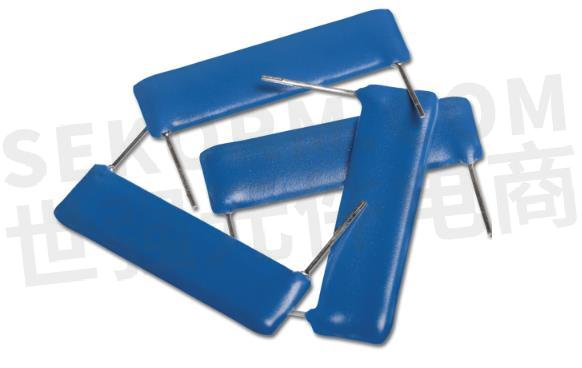Protection & High Voltage Resistors for Medical Applications

High voltage and surge tolerant resistors are essential components in circuitry for many medical applications. They offer protection for sensitive inputs from large differentials in electrical potential and energy surges, which may be routine occurrences in certain application areas. Some procedures in the medical sector, for example, require high voltage and surge protection to guarantee that instruments can be operated safely and efficiently. Many experts have identified this as an ongoing pain point in defibrillators, which are used to induce normal cardiac rhythms by shocking patients with an abrupt electrical surge.
In this blog post, TT Electronics aims to explore how high voltage resistors are an ideal solution for demanding medical applications.
Defibrillators & The Need for High Voltage Protection

Defibrillators are used to correct ventricular fibrillation by restoring a regular heartbeat. Adhesive electrodes are placed on a patient’s chest, acting as a conduit for a high electrical surge which is intended to shock the cardiac system into resuming a normal rhythm. Calibration of this surge energy is absolutely critical to the success of the operation and the service life of the device. Furthermore, if surge energy is diverted from the patient, it can propagate back into the defibrillator and damage sensitive monitoring inputs.
One solution is to use protection resistors which can be integrated into the monitor cable to prevent diversion of the surge energy. The small amount of electrical energy that does reach monitor inputs can be safely dissipated as heat. Yet there are specific technical considerations to bear in mind when choosing a resistor. For example, short-duration pulses (around 5 milliseconds) mean that the resistive element must carry the heat energy, while longer durations would cause it to dissipate throughout the component. Additional considerations include wave shape and the mass of the resistor element.
Another solution for optimal defibrillator performance is to use high voltage resistors to scale down the voltage by exact and stable ratios by forming a voltage divider. This enables sensitive micro processing equipment to determine what the voltage is without connecting directly to high voltage signals that would be damaging. Both surface mount and through-hole high voltage resistors can be used to control the defibrillator charging level up to a maximum of 5kV.
High Voltage Resistors from TT Electronics
TT Electronics engineers are experts in supporting the design of electronics hardware for medical applications. We have one of the widest sensing portfolios in the world, with unique technical expertise and a collaborative approach to product actualization. Our range of high voltage resistors has been identified as a potential solution to the challenges faced by high-value devices in the medical sector. These include both surface mount and through-hole designs, with power ratings of up to 4.5W and voltage ratings as high as 30kV.
TT Electronics has already found success in the supply of high voltage planar (HVP) resistors for defibrillation charge control circuits, providing long-term performance under high voltage stresses.
- 【Datasheet】Resistors High Voltage Planar Resistors HVP Series
- 【Datasheet】HVP Series High Voltage Planar Resistors
- 【Datasheet】Product Data Short Form Resistors BI Technologies IRC Welwyn
- +1 Like
- Add to Favorites
Recommend
- TT Electronics to Showcase Portfolio of Power Technologies for Critical Applications at APEC 2024
- TT Electronics and Radwave Announce Extension of Partnership and Exclusive Manufacturing Agreement
- TT Electronics to Feature Advanced Passenger Interface and Lighting Technologies at Aircraft Interiors Expo
- Telenor IoT Selects TT Electronics as Hardware Partner in the Nordics
- TT Electronics Acquires Ferranti Power and Control Business from Elbit Systems, Strengthening Aerospace and Defence Portfolio
- TT Electronics Receives Supplier Excellence Award
- TT Electronics Opens New State-of-the-Art Power and Control R&D Facility in Manchester UK
- TT Electronics Announced the Company Has Been Shortlisted, Along with ZapCarbon, for the IoT Social Impact Award
This document is provided by Sekorm Platform for VIP exclusive service. The copyright is owned by Sekorm. Without authorization, any medias, websites or individual are not allowed to reprint. When authorizing the reprint, the link of www.sekorm.com must be indicated.





























































































































































































































































































































































































































































































































































































































































































































































































































































































